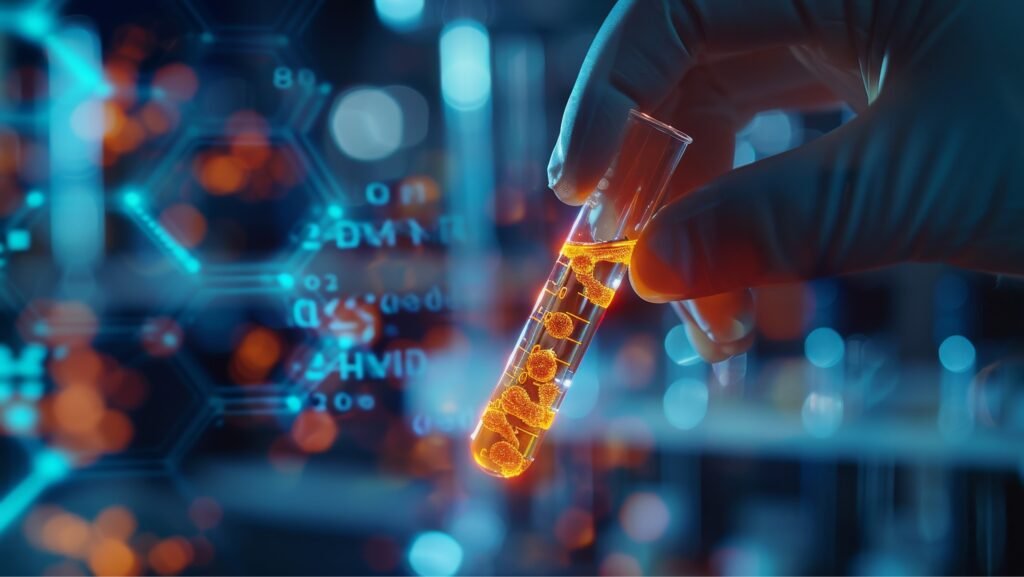Share on
Are you looking to take your muscle growth to the next level? Look no further than peptides! These short chains of amino acids have been making waves in the fitness world for their ability to stimulate protein synthesis, enhance recovery, and improve overall fitness. But with so many options out there and changing regulations, it can be tough to navigate the peptide landscape. Don’t worry, though – we’ve got you covered with this ultimate guide to peptides for muscle growth. Get ready to flex your knowledge and your muscles!
Key Takeaways
- Peptides are short chains of amino acids that act as signaling molecules in the body, stimulating muscle growth and recovery.
- Popular peptides for muscle growth include Ipamorelin/CJC-1295, MK677, collagen peptides, Sermorelin, and Semaglutide.
- Peptides offer benefits such as increased protein synthesis, enhanced IGF-1 levels, improved nutrient absorption, and anti-inflammatory properties.
- FDA regulations have led to the discontinuation of certain peptides, making it essential to stay informed about safety and consult with a healthcare provider.
- The best peptides for muscle growth are ranked based on effectiveness, safety, and availability, with collagen peptides, Sermorelin, Tesamorelin, and Hexarelin being top options.
Table of Contents

How Peptides Work to Promote Muscle Growth
So, how exactly do these tiny chains of amino acids help you build big gains? It all comes down to their ability to stimulate key processes in the body. Here’s a closer look at how peptides work their magic:
Increased Protein Synthesis
At the core of muscle growth is protein synthesis – the process by which your body builds new muscle tissue. Peptides give this process a major boost by stimulating the production of proteins, providing your muscles with the building blocks they need to grow and recover.
Enhanced IGF-1 Levels
Insulin-like growth factor 1 (IGF-1) is a hormone that plays a crucial role in muscle growth and repair. Certain peptides, such as Ipamorelin and CJC-1295, can increase the production of IGF-1, leading to improved muscle growth and faster recovery times.
Improved Nutrient Absorption
To maximize muscle growth, your body needs to be able to efficiently absorb and utilize the nutrients you consume. Peptides can enhance your body’s ability to absorb and utilize essential nutrients, ensuring that your muscles have access to the fuel they need to grow and recover.
Anti-Inflammatory Properties
Inflammation is a natural part of the muscle-building process, but excessive inflammation can hinder recovery and lead to muscle soreness. Peptides have anti-inflammatory properties that help reduce inflammation, allowing for faster recovery and reduced muscle soreness.
| Peptide Benefit | How It Works |
|---|---|
| Increased Protein Synthesis | Stimulates the production of proteins, the building blocks of muscle tissue |
| Enhanced IGF-1 Levels | Increases the production of IGF-1, leading to improved muscle growth and repair |
| Improved Nutrient Absorption | Enhances the body’s ability to absorb and utilize nutrients essential for muscle growth |
| Anti-Inflammatory Properties | Reduces inflammation, allowing for faster recovery and reduced muscle soreness |

Popular Peptides for Muscle Growth
Now that you know how peptides work, let’s dive into some of the most popular options for muscle growth. Keep in mind that some of these peptides have been discontinued by the FDA, but we’ll also discuss alternative options.
Ipamorelin/CJC-1295
This dynamic duo of growth hormone-releasing peptides (GHRPs) works together to stimulate the natural production of growth hormone and IGF-1. By enhancing muscle growth, fat loss, and recovery, Ipamorelin and CJC-1295 have become popular choices among fitness enthusiasts. However, they have been discontinued by the FDA, leading to the promotion of alternatives like Tesamorelin and Hexarelin.
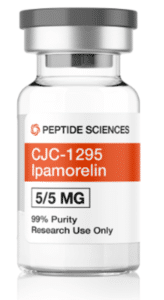
MK677
MK677 is an orally active growth hormone secretagogue that increases growth hormone and IGF-1 levels. It’s known for promoting muscle growth, improving sleep quality, and aiding in recovery. While it has been discontinued by the FDA, MK677 remains popular among bodybuilders and fitness enthusiasts.
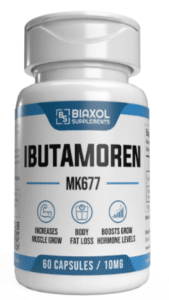
Collagen Peptides
Derived from collagen protein, these short chains of amino acids are a safe and effective option for supporting muscle repair, joint health, and connective tissue strength. Collagen peptides have been shown to reduce muscle soreness and improve recovery time, making them a popular choice for athletes and fitness enthusiasts alike.
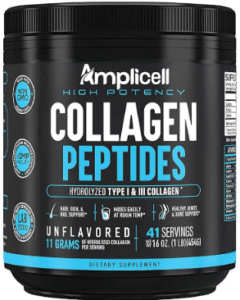
Sermorelin
Sermorelin is a growth hormone-releasing hormone (GHRH) that stimulates the natural production of growth hormone. It enhances muscle growth, improves sleep quality, and aids in recovery, making it a safer alternative to direct growth hormone injections.
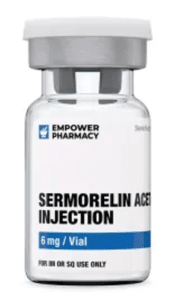
Semaglutide
Originally developed for the treatment of type 2 diabetes, Semaglutide is a glucagon-like peptide-1 (GLP-1) receptor agonist that has shown promise in aiding weight loss. By reducing appetite and increasing feelings of fullness, Semaglutide may offer potential benefits for body composition and muscle-to-fat ratio.
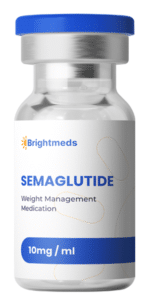
Safety and Regulation of Peptides
While peptides offer exciting possibilities for muscle growth, it’s crucial to stay informed about safety and regulatory changes. Here are some key points to keep in mind:
- FDA Updates: Certain peptides, such as Ipamorelin/CJC-1295 and MK677, have been discontinued due to regulatory changes. It’s essential to stay up-to-date on these changes to ensure you’re using safe and approved peptides.
- Healthcare Consultation: Before using any peptides, it’s crucial to consult with a healthcare provider. They can help you determine the appropriate dosing, monitor for potential side effects, and ensure that peptides are safe for your individual needs.
- Potential Side Effects: While peptides are generally considered safer than steroids, they can still cause side effects. These may include injection site reactions, headaches, and changes in blood sugar levels. Working closely with a healthcare provider can help minimize these risks.
- Alternative Options: As some popular peptides have been discontinued, alternatives like Tesamorelin and Hexarelin are being researched and promoted. These options may offer similar benefits while complying with current regulations.
Ranking the Best Peptides for Muscle Growth
With so many peptides available, it can be challenging to know which ones are the most effective and safe. Here’s our ranking of the top peptide options based on effectiveness, safety, and availability:

- Collagen Peptides: Safe, effective, and widely available, collagen peptides are a top choice for supporting muscle repair and recovery.
- Sermorelin: By stimulating natural growth hormone production, Sermorelin offers muscle growth benefits with fewer side effects compared to direct growth hormone injections.
- Tesamorelin: As an alternative to the discontinued Ipamorelin/CJC-1295, Tesamorelin shows promise in enhancing muscle growth and fat loss.
- Hexarelin: With the discontinuation of MK677, Hexarelin is being explored as a potential replacement for its muscle growth and recovery benefits.
When choosing peptides, it’s essential to source them from reputable companies that prioritize quality and research. Companies like Peptide Sciences and Paradigm Peptides are known for providing high-quality peptides and research chemicals.
How to Incorporate Peptides into Your Muscle Growth Plan
Ready to harness the power of peptides for your muscle growth goals? Here’s how to incorporate them into your plan:
- Determine the Right Peptides: Work with a healthcare provider to determine which peptides are best suited for your specific goals and needs. They can help you navigate the options and ensure safety.
- Optimize Dosage and Cycle Length: Follow recommended dosage and cycle length guidelines to maximize results while minimizing potential side effects. Your healthcare provider can help you determine the optimal protocol.
- Combine with Training and Nutrition: Peptides work best when combined with a well-designed resistance training program and balanced nutrition. Focus on progressive overload, adequate protein intake, and overall nutrient density to support muscle growth.
- Track Progress and Adjust: Keep track of your progress and be prepared to adjust your peptide use as needed. Regular check-ins with your healthcare provider can help you fine-tune your approach and ensure ongoing safety and effectiveness.
Conclusion
Peptides offer a powerful tool for enhancing muscle growth, recovery, and overall fitness. By increasing protein synthesis, enhancing IGF-1 levels, improving nutrient absorption, and reducing inflammation, peptides can help you take your gains to the next level.
However, it’s crucial to stay informed about regulatory changes and prioritize safety when using peptides. Working closely with a healthcare provider, sourcing from reputable companies, and staying up-to-date on the latest research can help you navigate the evolving landscape of peptide usage.
Armed with this ultimate guide, you’re well on your way to maximizing your muscle growth potential with peptides. Remember to train hard, eat well, and stay informed – and get ready to watch your gains soar!

